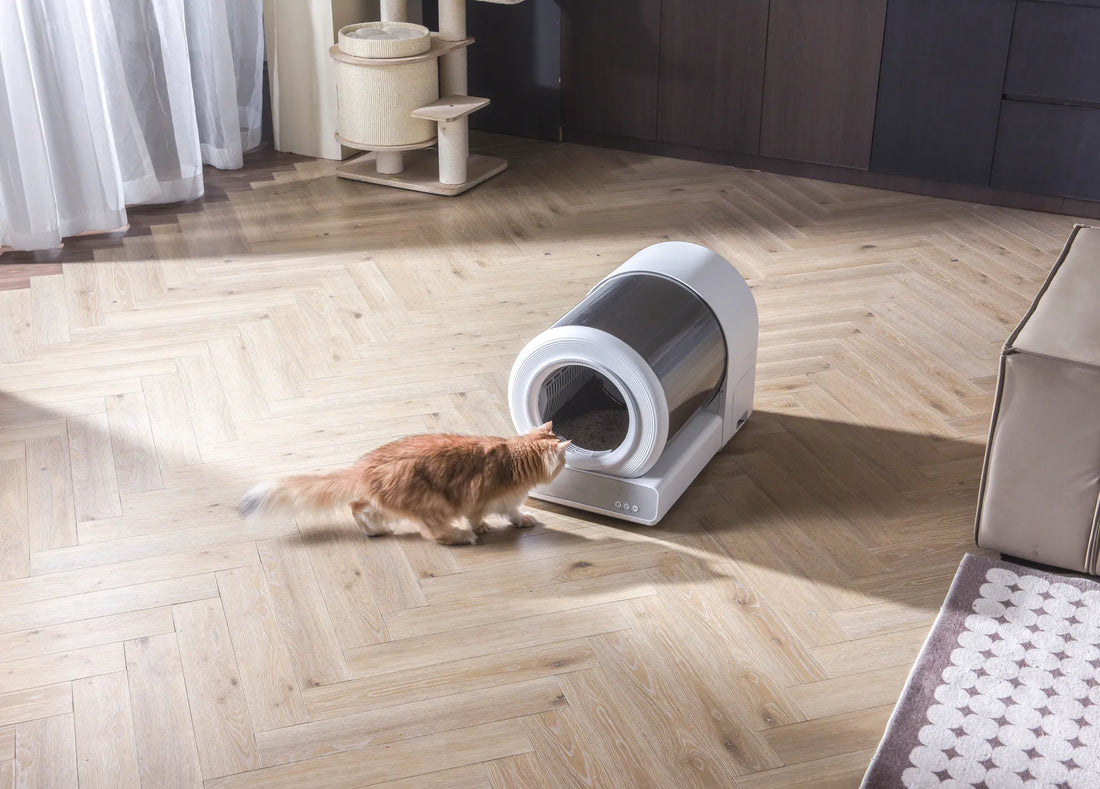If you've ever found yourself asking, 'Why is my cat peeing outside the litter box but pooping in it?' you're not alone. This common feline behavior can be both frustrating and confusing for pet owners. Understanding the underlying causes is crucial to finding a solution and ensuring your cat's well-being.
Understanding Your Cat's Behavior
Cats are creatures of habit, and any deviation from their usual routine can be a sign of an underlying issue. When a cat starts peeing outside the litter box but continues to poop in it, it's essential to consider both medical and behavioral factors.
Medical Causes
One of the first things to rule out is a medical condition. Urinary tract infections (UTIs), bladder stones, and other health issues can cause discomfort during urination, leading your cat to associate the litter box with pain. In such cases, your cat may seek alternative places to relieve themselves.
Other medical conditions, such as diabetes or kidney disease, can also lead to increased urination, making it difficult for your cat to reach the litter box in time. If you suspect a medical issue, it's crucial to consult your veterinarian for a thorough examination and appropriate treatment.
Behavioral Causes
If medical issues have been ruled out, the next step is to consider behavioral factors. Stress, anxiety, and changes in the household can all contribute to litter box avoidance. Cats are sensitive to their environment, and even minor changes can disrupt their routine.
Territorial issues can also play a role. If you have multiple cats, one may feel threatened and mark their territory by urinating outside the litter box. Ensuring each cat has their own space and resources can help alleviate this problem.
Environmental Factors
The litter box itself can be a source of discomfort for your cat. Factors such as the type of litter, the size of the box, and its location can all influence your cat's behavior. Cats prefer a clean, quiet, and easily accessible litter box.
Litter Box Maintenance
Regular cleaning is essential to keep your cat happy. A dirty litter box can deter your cat from using it, leading to accidents outside the box. Aim to scoop the litter box daily and change the litter completely at least once a week.
The type of litter you use can also make a difference. Some cats have preferences for certain textures or scents. Experimenting with different types of litter can help you find one that your cat prefers.
Litter Box Placement
Location matters when it comes to the litter box. Cats prefer a quiet, low-traffic area where they can do their business in peace. Avoid placing the litter box near noisy appliances or in areas where your cat might feel trapped.
If you have a multi-level home, consider placing a litter box on each floor. This ensures that your cat always has easy access to a litter box, reducing the likelihood of accidents.
Stress and Anxiety
Stress and anxiety can have a significant impact on your cat's litter box habits. Changes in the household, such as a new pet, a move, or even a change in your daily routine, can cause your cat to feel anxious.
Identifying Stressors
Take note of any recent changes in your cat's environment. Have you introduced a new pet? Have there been changes in your work schedule? Identifying potential stressors can help you address the root cause of your cat's behavior.
Reducing Stress
Creating a calm and stable environment is key to reducing your cat's stress. Provide plenty of hiding spots, perches, and scratching posts to help your cat feel secure. Interactive toys and regular playtime can also help alleviate anxiety.
In some cases, pheromone diffusers or calming supplements may be beneficial. These products can help create a sense of calm and reduce stress-related behaviors.
Territorial Issues
Territorial behavior is another common cause of litter box avoidance. Cats are naturally territorial animals, and conflicts with other pets can lead to marking behavior.
Managing Multi-Cat Households
If you have multiple cats, it's essential to ensure that each cat has their own space and resources. This includes separate litter boxes, food and water dishes, and resting areas. Providing multiple litter boxes can help reduce competition and prevent territorial disputes.
Introducing New Pets
Introducing a new pet to the household can be a stressful experience for your cat. Take the time to introduce the new pet gradually, allowing your cat to adjust at their own pace. Providing separate spaces and resources can help ease the transition.
When to Seek Professional Help
If you've tried addressing both medical and behavioral factors and your cat continues to pee outside the litter box, it may be time to seek professional help. A veterinarian or a feline behaviorist can provide additional insights and recommendations tailored to your cat's specific needs.
Consulting a Veterinarian
Your veterinarian can perform a thorough examination to rule out any underlying medical conditions. They may also recommend diagnostic tests, such as blood work or urinalysis, to identify any health issues.
Working with a Behaviorist
A feline behaviorist can help you understand the underlying causes of your cat's behavior and develop a customized plan to address it. They can provide guidance on environmental modifications, training techniques, and stress reduction strategies.
Understanding why your cat is peeing outside the litter box but pooping in it is the first step toward finding a solution. By addressing both medical and behavioral factors, you can help your cat feel more comfortable and secure in their environment. Remember, patience and consistency are key to resolving this issue and ensuring your cat's well-being.

![[🎃Halloween Sale]UAHPET Stainless Steel Self-Cleaning Cat Litter Box](http://www.uahpet.com/cdn/shop/files/1-cat-litter-box.jpg?v=1761890851&width=1600)












